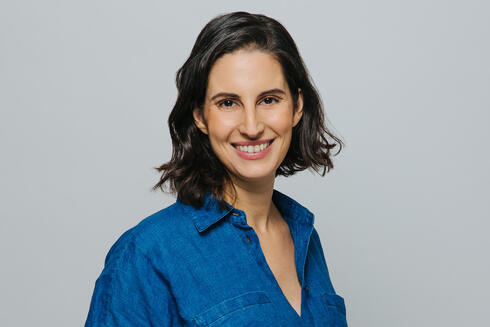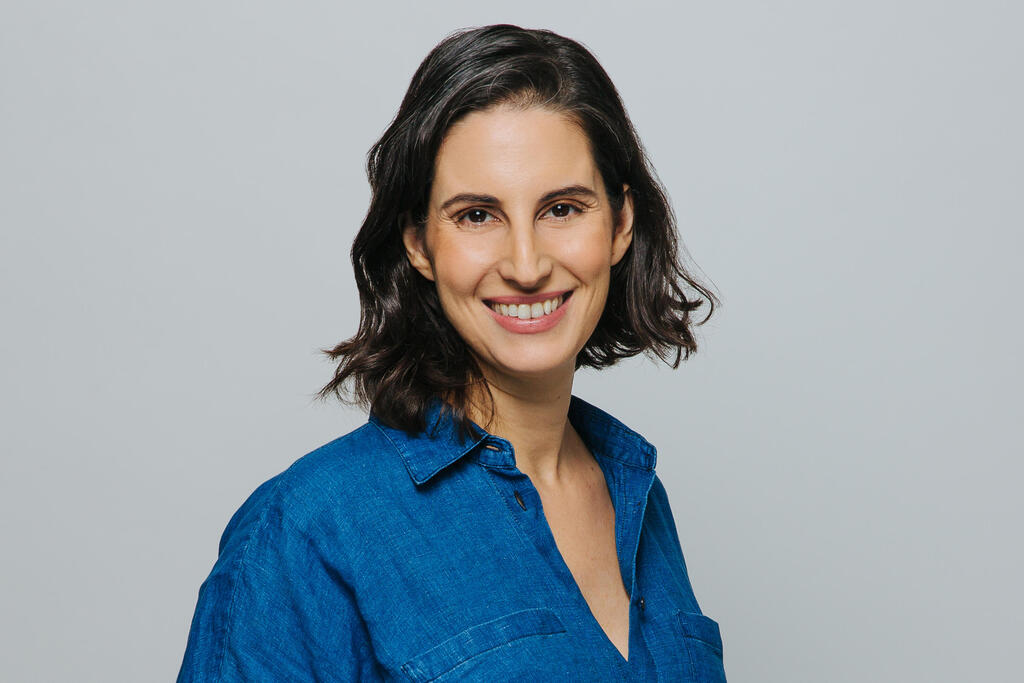
Innovation in War
Generative AI called up for duty
“The innovative technology enables the creation of content that evokes involvement, raises awareness, and even generates empathy and personal experience,” writes Shiran Mlamdovsky Somech
Artificial Intelligence (AI) has stormed into our lives, influencing every domain and niche. This is also the case in the dreadful war we find ourselves in.
Consciousness becomes another battleground where war is waged, and the real fight unfolds in the digital world, where we all become soldiers and fighters. With our keyboards, we witness how artificial intelligence has become a key tool in the war over people’s consciousness and narratives. This is a new chapter in the evolution of digital psychological warfare.
So, what is generative AI, and how have we all become significant players in this new game? The innovative technology allows each of us to easily and quickly create new content such as text, images, or other media based on existing material. No technical background is needed.
During wartime, as fears and uncertainties swirl around us, the use of artificial intelligence has significantly expanded. On one hand, there are those who exploit it to sow fear, anxiety, and confusion, by creating fake news based on deepfakes, such as dramatic information or "statements" from leaders and celebrities that quickly go viral on social networks. On the other hand, it's an opportunity to use the new tools available to us to create a broad and positive impact on the general public.
The innovative technology enables the creation of content that evokes involvement, raises awareness, and even generates empathy and personal experience. With the contribution of leading technology companies, combined with humanity and creativity, it can indeed be harnessed for a broad impact both in our country and globally, playing a significant role in the battle for consciousness. A battle in which new heroes are born and continue to emerge.
Below is my overview of three areas where generative artificial intelligence is widely used within the context of the war imposed upon us. These include private civilian initiatives:
AI for locating missing persons:
"Liri Smile" is a project launched by Tamir Rahamim, CEO of GainGuard, to support families of individuals kidnapped or missing in Gaza. Employing AI technology, the system trawls social media seeking matches for the missing, notifying security forces upon identifying potential matches. The project was sparked by the kidnapping of 19-year-old Liri Albeg, a relative of Rachamim.
Rahamim, with a volunteer team, partnered with GainGuard, Bria.ai, Infinity Labs R&D, AWS, and Develocore to craft this pioneering solution.
A face-recognition platform - A system that aids in verifying the identities of victims, missing persons, and abductees created by Yuval Avidani, an AI expert. Using artificial intelligence, the system seeks similarity between two pictures of the person being searched for, and the AI provides an assessment of whether there's a resemblance between the original and the examined picture.
Avidani notes that the tool isn't entirely accurate because specialized models must be trained, and in this case, due to the urgency and time limits, he relied on pre-existing models.
The 'Iron Swords' platform for locating missing persons - a project that began as a database in which they search for the name of the missing person, update about their status, or provide new details has moved to the next phase, analyzing the collected data with the aim of cross-referencing information using AI models for face recognition. Alongside the photos of the missing and their details, volunteers collected a repository of photos and videos distributed by Hamas. The data was transferred to state authorities, the IDF Home Front Command, and hospitals. The primary goal is to locate the missing, and the secondary goal is to identify terrorists. The project has quickly grown into a volunteer structure counting dozens of people, including, among others, several teams of programmers specializing in AI. This is a private civilian initiative led by Yuval Keshtcher, a user experience expert.
Related articles:
- "For every fallen soldier, for every murdered civilian, let’s put together a new innovative startup," says entrepreneur Izhar Shay, whose son was killed by Hamas
- Israel Innovation Authority launching $25 million grant fund to support 100 startups
- Google pledges $8 million in grants to nonprofits “providing relief to civilians affected in Israel and Gaza”
Public diplomacy in all languages with a click of a button:
A significant advantage of artificial intelligence is its ability to create videos in multiple languages, making information accessible to diverse populations worldwide. Almost everything may be done with a single click, including dubbing, animation, voice replication, subtitles, and translation.
A prime example is Noa Tishby's explanatory videos, translated and dubbed on the HeyGen platform. This platform allows for the replication of an existing speaking video to the same video and voice in other languages. The videos in other languages for Noa Tishby were created by Erez Rubinstein, an AI researcher, creator, and lecturer.
Ruben Hassid took it a step further and created a Do It Yourself post that went viral, on creating explanatory videos in multiple languages.
In addition, the Israeli company D-ID has offered free use of its platform to create explanatory videos. Using the company's studio, one can create video clips of human characters from a single still image in 120 languages, contributing to Israeli advocacy efforts worldwide.
Employees of the artificial intelligence company AI21 Labs launched a website named 'Iron Lions' that documents and translates testimonies from the "Iron Swords" war into English. Initially, these testimonies were preserved in a repository accessible only to entities involved in advocacy, including the IDF Spokesperson's Unit, the Ministry of Public Diplomacy and Diaspora Affairs, the Ministry of Foreign Affairs, and Stand with Us.
Now, dozens of testimonies are publicly available on the site for global users.
Testimonies can be submitted in either Hebrew or English. Subsequently, an English translation will be provided, accompanied by a series of images in "story" format suitable for social media sharing.
Additionally, they were approached by a lawyer representing abductees and their families, and they plan to use evidence from the platform in a lawsuit at the court in The Hague.
Iron Swords Chatbot, similar to ChatGPT, is specifically designed for advocacy, allowing virtual "conversations" to receive explanations, images, and testimonies about the war and the challenging events, in any language. You can get particularly graphic images and testimonies by adding the word "Graphic" to the search. To date, it has acquired over 2,000 users worldwide and constant resistance to hacking attempts. Another development by Yuval Avidani.
Images for advocacy purposes - Hundreds of professionals who, over the past year, have specialized in platforms like MidJourney, Dall-E and Stable Diffusion, are creating images using text, leveraging their knowledge and experience to produce well-made, creative, and accurate images.
"Israela" chatbot, a bot that has just come into existence and is already active on Messenger, WhatsApp, and Instagram, aiming to match volunteers with NGOs that organize volunteering activities. Tens of thousands of records of people wanting to volunteer and NGOs in need of volunteers have been collected. To utilize the collected data and match the need with the response, an artificial intelligence system was built based on an existing language model from Microsoft. The project was established by Harduff Winkler, an AI coach in a startup company.
Leveraging technology to cheer and encourage children:
Even outside the Gaza envelope and southern settlements, children throughout the country found themselves in a difficult and challenging situation. Without educational frameworks, daily rocket alarms, and parental stress and anxiety, several initiatives have been set up that aim at encouraging and instilling optimism in children, including a personal birthday wish from Taylor Swift to a 15-year-old girl who was supposed to celebrate her birthday on October 7th. Instead of candles and balloons, she woke up to a rocket attack. She's a fan of Taylor Swift, and following an emotional request from her mother, Yishay Raziel created a "personal" video message from Taylor Swift.
The community named "Creating content and calming videos for children" started from a WhatsApp group created by Shahar Fleisher and quickly turned into an impressive collaborative of educators, content creators, designers, editors, and more, aimed at producing specific content for children. The focus is on creating effective content that will explain and calm children during this period. Within this wonderful group, many ideas and initiatives were born; some of these ideas are led by certified therapists and professionals, and are now in the execution phase. For example, these lovely explanatory videos approved by an emotional therapist and tailored for kindergarten children.
Lilach Kipnis, a social worker from Be'eri, has long helped children in the border areas cope with trauma. She authored a children's book addressing their fears, distributing it locally. Lilach and her husband were kidnapped to Gaza. Her children took to Facebook, urging others to share her book to support more children affected by alarms and missiles. After learning of her story, this group aimed to amplify her message and book for a wider audience, with her family's consent.
AI course for children residents of the Gaza envelope - Doctor Code (Nathanel Yosef) and Yuval Avidani want to allow children to try and move their thoughts to a calmer place, so they offer a free AI course to all residents of the Gaza envelope. The course includes content suitable for both children and adults. The course does not require extensive technical knowledge. The course includes an introduction to using advanced artificial intelligence tools such as ChatGPT, Mid Journey, Stable Diffusion, Leonardo, and more. To get free access, fill out the following form.
Coloring pages for children based on child heroes and Israeli flags, created by Dana Ackerman using MidJourney.
It is especially in such challenging times as the war that we find ourselves having to prove to ourselves our strength as a society. Through creativity, humanity, and innovative technology, we can strengthen mutual responsibility by encouraging commitment across sectors and perspectives. One for all. All for one.
Thank you to Ori Bejerano, a digital manager, AI artist, and lecturer, for collecting the detailed materials.
Shiran Mlamdovsky-Somech is the founder and leader of the consultancy and innovation company 'Generative AI for Good' and works with startups, including D-ID.














